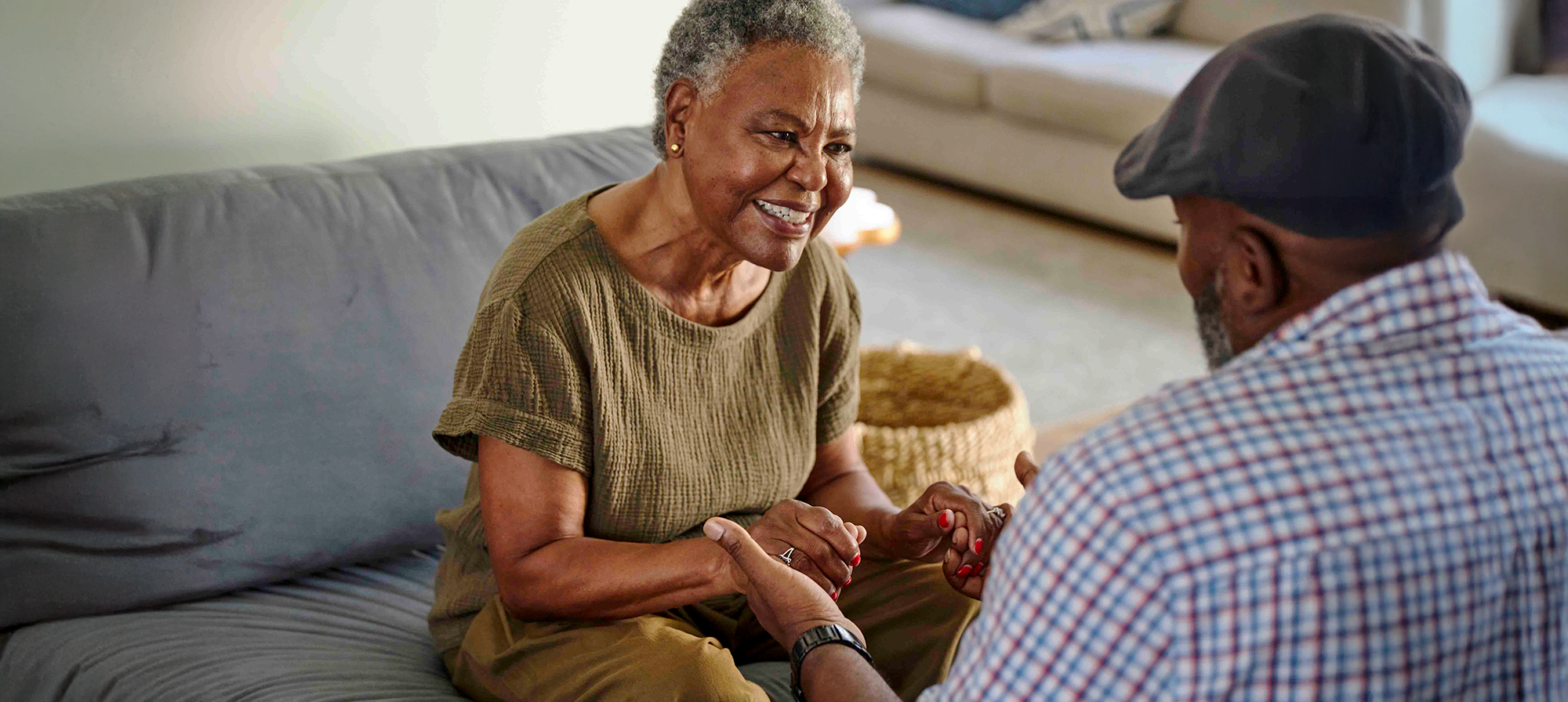Do you want a fuller social life but don’t know where to start? This 5-day challenge will jumpstart your socializing to grow your social circle!
A fulfilling social life offers more than just fun. It’s good for your whole self, benefiting your brain, mood, longevity, and more. And it’s not just your deep connections that make a difference. Chats with strangers and acquaintances matter, too!
Benefits of socializing
One well-known benefit of socializing is the boost it gives to your mental health. Social interactions of all kinds can help lower your stress levels and boost your mood. They can also help you feel less lonely or isolated—feelings that may become more common in your golden years. Plus, your social circle offers you emotional support. They are the people you can celebrate with during good times and the ones you can turn to during hard times. But the benefits go beyond how you feel.
Along with the mental health boost, some benefits of socializing are:
-
Longer life: Studies have shown that people with strong social connections tend to live longer.
-
Better physical health: Social connection helps reduce the risk of disease and illness. It can also promote healthy eating and encourage physical activity.
-
Enhanced brain function : During social activities, your brain is processing a lot. You’re reading body language. You’re listening and thinking about what to say. You’re watching what’s happening around you—and more. That uses a lot of cognitive power. Plus, studies suggest that socializing helps keep your mind sharp. It may even help lower the risk of dementia.
How can you reap these benefits? Cast a wide net—it’s the variety of social interactions that contribute to your overall happiness. So, strike up a conversation with your neighbor. Take a class. Attend a community event. Reach out to your current friends, reconnect with old ones, and even nurture friendships with your adult children. The more ways you socialize, the better you’ll feel—body, mind, and soul.

The 5-day challenge to a more vibrant social life
Finding—and keeping—adult friendships takes effort. You may have to get out of your comfort zone. And yes, it might feel awkward at first. But that’s where change happens! By pushing through the discomfort, you open the door to new bonds and a fuller social life.
Complete these 5 social connection activities over 5 days to rekindle connections and find new ones.
Day 1: Call a friend.
Relationships grow when people make an effort. A simple call can rekindle warmth and remind someone they matter.
Tips:
-
Set the tone: Start with a warm greeting and share why you thought of them.
-
Plan a few talking points: Ask about what they’ve been doing lately, what shows they’re watching, or any plans they have coming up.
-
Go deeper: If the conversation flows, talk about shared memories or future goals.
-
Bonus challenge: Invite them to meet in person or schedule a follow-up call.

Day 2: Chat with a stranger.
Small interactions can have a powerful impact on your mood and sense of belonging. You never know what a simple “hello” might lead to.
Tips:
-
Be observant: Give a real compliment about something you notice—like earrings, a hat, or a cheerful attitude.
-
Keep it light: Ask about their day or comment on something around you.
-
Practice empathy: Smile, make eye contact, and be open to listening.
-
Bonus challenge: Try this in a new setting—like a coffee shop, bookstore, or park.

Day 3: Get to know your neighbors.
Your neighbors are a key part of your social circle. Since they live nearby, it’s easier to gather for social activities. And they can be a great source of help, whether you need a cup of sugar or a ride to an appointment.
Tips:
-
Start small: Wave hello, ask about their garden, or compliment their pet.
-
Leave a note: A handwritten card with a kind message can brighten someone’s day.
-
Offer help: Share resources, recommend local services, or invite them to a neighborhood event.
-
Bonus challenge: Organize a mini meet-and-greet or exchange contact info.

Day 4: Plan a dinner.
Sharing a meal is one of the oldest and most powerful ways to connect. It fosters conversation, laughter, and shared memories.
Tips:
-
Choose your style: Potluck, BBQ, themed dinner—whatever suits your fancy.
-
Make it inclusive: Invite a mix of people—old friends, new acquaintances, and neighbors.
-
Create conversation starters: Use table cards with fun questions or prompts.
-
Bonus challenge: Ask each guest to bring a dish that tells a story.

Day 5: Join a group meeting or event.
Regular social engagement helps you build strong connections. It also allows you to see things from different viewpoints and connect with people of all ages.
Tips:
-
Explore your interests: Look for clubs, classes, events, or volunteer opportunities that excite you.
-
Start your own: If nothing fits, create a group around a shared passion—perhaps books, art, walking, or wellness.
-
Keep it doable: Choose a schedule that works for you—weekly, monthly, or seasonally.
-
Bonus challenge: Invite someone from a previous day to join you.

Reflect and plan
After your 5 days of social activity, reflect on the week. How do you feel? Energized? Content? Maybe a little tired? Recognize your feelings—they show the effort you put in and the connections you've nourished.
Then think about what you enjoyed most this week and choose at least one thing to keep doing. Perhaps that’s weekly calls, monthly dinners, or group meetings. Whatever it is, the key is to keep it going and keep your social circle growing.
Remember, this is just the beginning of your new, bigger social life. Keep connecting and exploring new social opportunities and watch your social life bloom!
Not a Silver&Fit® member? Learn more about everything the program has to offer, including more helpful healthy living tips like this, here on our website.
This information is not intended to take the place of regular medical care or advice. Please check with your doctor before using this information or beginning any self-care program. Images used for this article do not depict any members of the Silver&Fit Program.
References
Centers for Disease Control and Prevention. (2024, May 15). Social connection. https://www.cdc.gov/social-connectedness/about/index.html
Godman, H. (2023, October 22). Get back your social life to boost thinking, memory, and health. Harvard Health Publishing, Harvard Medical School. https://www.health.harvard.edu/mind-and-mood/get-back-your-social-life-to-boost-thinking-memory-and-health
Mackenzie, C., & Abdulrazaq, S. (2019). Social engagement mediates the relationship between participation in social activities and psychological distress among older adults. Aging & Mental Health, 25(2), 299–305. https://doi.org/10.1080/13607863.2019.1697200
Mayo Clinic. (2024, October 15). Friendships: Enrich your life and improve your health. https://www.mayoclinic.org/healthy-lifestyle/adult-health/in-depth/friendships/art-20044860
Perlmutter, A. (2023, March 24). The brain benefits of social connection. Psychology Today. https://www.psychologytoday.com/us/blog/the-modern-brain/202303/the-brain-benefits-of-social-connection
Suttie, J. (2022, December 5). A healthy social life goes beyond friends and family. Greater Good Magazine, University of California, Berkely. https://greatergood.berkeley.edu/article/item/a_healthy_social_life_goes_beyond_friends_and_family
This article was written by Keleigh Somes, edited by Stephanie Ruiz, and clinically reviewed by Elizabeth Thompson, MPH, RDN, on August 29, 2025.




